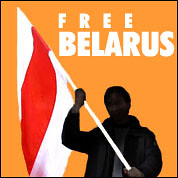In Defense of Freedom
The REAL kind - an absence, or at least minimization of coercion.
Eloquently spelled out by Daniel McCarthy. There's not much need to comment from me, he speaks very well on my behalf. One choice passage here, but I recommend you read, and perhaps bookmark, the whole thing.
Libertarian societies in all their variety would not be utopias, of course. Libertarianism does not propose an end to evil or even to coercion, but only the flourishing of civilization in the absence of institutionalized coercion. Crime would not disappear, poor taste would still exist, and even conservative communities would remain beset with imperfection. Removing the privileges of the state would make these evils smaller, less centralized, and more manageable, however. This picture is no abstraction or economic construct; it arises from the practice of actual institutions. The record of civil society and the free market is as old as the human race.
Eloquently spelled out by Daniel McCarthy. There's not much need to comment from me, he speaks very well on my behalf. One choice passage here, but I recommend you read, and perhaps bookmark, the whole thing.
Libertarian societies in all their variety would not be utopias, of course. Libertarianism does not propose an end to evil or even to coercion, but only the flourishing of civilization in the absence of institutionalized coercion. Crime would not disappear, poor taste would still exist, and even conservative communities would remain beset with imperfection. Removing the privileges of the state would make these evils smaller, less centralized, and more manageable, however. This picture is no abstraction or economic construct; it arises from the practice of actual institutions. The record of civil society and the free market is as old as the human race.



0 Comments:
Post a Comment
<< Home